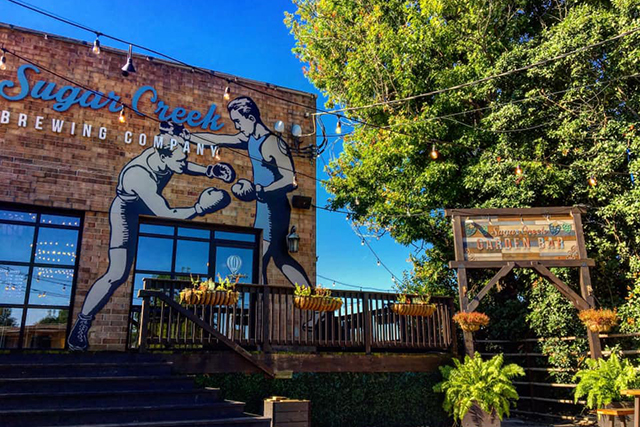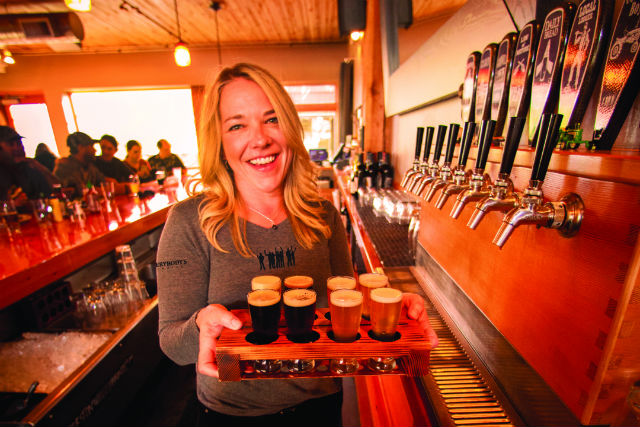
International Insights is a continuing series of Q&As with brewing members, but this time branching outside of the US and into the rest of the world.
In this series, Brewer will share personal insights from international breweries each week about the craft beer market in other countries, where those brewers get their inspiration, and how the market compares to craft beer in the US.
Photo by Lauren Ishak.
Sonam Lhaden, CEO, Ser Bhum Brewery — Bhutan
BREWER: What are the most popular beers at your brewery?
LHADEN: Our brewery produces two local beers — The Bhutan Glory Amber Ale and The Dragon Stout (our flagship beers), in both cans and on tap. Although both the beers are quite popular, the Bhutan Glory Amber Ale is doing very well and it is, therefore, our most popular beer. I don’t think that the Bhutanese palate has grown accustomed to the darker Dragon Stout, just yet.
We are also planning to launch a Honey Wheat, using local honey and also a Strong Lager this year. We also contract brew two beers for the Indian market — Kati Patang Zesty Amber & Kati Patang Snappy Wheat. Kati Patang’s literal meaning is “a kite”, but its larger meaning is “free kite,” because the beers are for the free-spirited, open and adventurous person. Both brews have become popular amongst the craft beer drinkers in India. We have also signed an agreement with another Indian company to launch a new brand of beer called the BEOR360. Two beers – a Lager and a Wheat – will be launched in India this year. We are extremely excited about this venture because we feel that BEOR360 will do well in India.
BREWER: What can you tell me about the craft beer market and popular styles in Bhutan?
LHADEN: The most popular beer style in Bhutan, like in many other countries, is the mainstream commercial Lagers. People in our part of the world like their beers strong because at the end of a hard day, they want to drink a beer, which is not too expensive, and to get drunk. So, beer has been generally seen as a cheap drink that you drink at the end of the day to get drunk. Now, with the few craft beers that are available, that perception is changing. People are beginning to understand and appreciate beer beyond the commercial Lagers. On our part, as the first craft brewery [in Bhutan], we wanted to reintroduce beer as a refreshing, quality drink with sophisticated and complex flavors. And this is going down well with the Bhutanese people, who are generally open, hospitable and appreciate a quality product. The Bhutanese lifestyle — with its emphasis on fun, adventure, community, and collectivism — is also very much in line with craft beer culture. However, currently, the craft beer culture is becoming popular only in major towns — like Thimphu and Paro. We are hoping that in the future, other towns will also embrace craft beer.
BREWER: How has COVID-19 affected your country and Ser Bhum Brewery? What measures have been put in place by the government?
LHADEN: Bhutan has been impacted severely by COVID-19. Borders with India have been closed, halting all exports and imports and the movement of people. Flights coming in and out of Bhutan have been restricted. Schools have been closed. Government offices are also partially closed with officers having to work from their homes. However, our government, under the leadership of His Majesty the King, has been very proactive in dealing with the outbreak for COVID-19. Free hand sanitizer is being distributed in towns. There are hand washing stations outside every major building and institution, and the flu clinics are open 24/7 for testing. As far as Ser Bhum is concerned, COVID-19 has seriously impacted our operations, particularly since the majority of our production is geared for exports. With borders being closed and the lockdown in India, export of our beers to India have come to a complete halt. We also import a lot of our raw materials from India and if the situation continues, our operations and production will be severely affected. However, despite the difficult situation, we continue to retain our employees and do not intend to lay them off anytime soon.
BREWER: How is your brewery adapting to the evolving landscape of this pandemic?
LHADEN: For now, we are continuing to run our operations, albeit at a small scale. We are trying to brew and package our beers with whatever raw materials and packaging materials that we have. However, if the situation continues and once our raw materials run out, we would have no option but to close down. At the brewery, we have put in place a hand washing station for visitors. Employees are using masks and gloves. We are also keeping track of people moving in and out of the brewery with Bhutan Plus’ contact tracing initiative — Trace. Trace provides any location or business with a unique QR code. Anyone visiting us can scan the QR code which will lead them to a form asking for their name and number. This is a precaution we are taking, in the words of Bhutan Plus, “in case (fingers crossed) Bhutan starts getting community transmissions.”






Really appreciate about it..
Hoping for variety products in future…